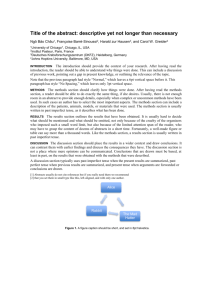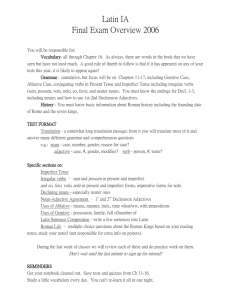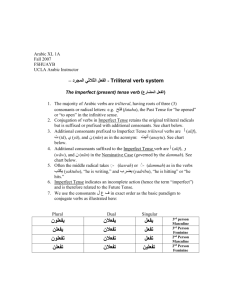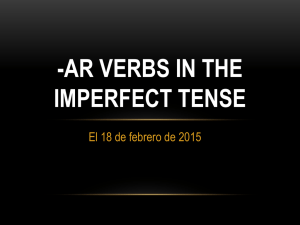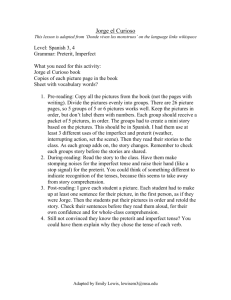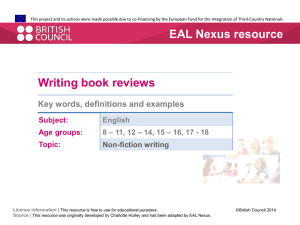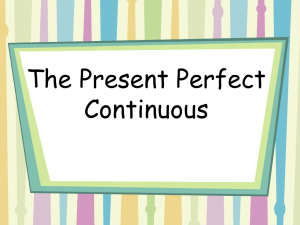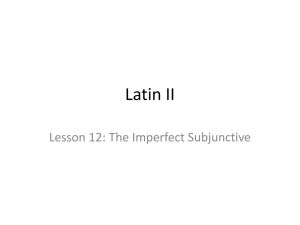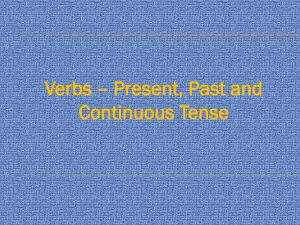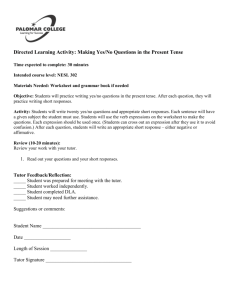Spanish Imperfect Tense Lesson Plan - 8th Grade
advertisement
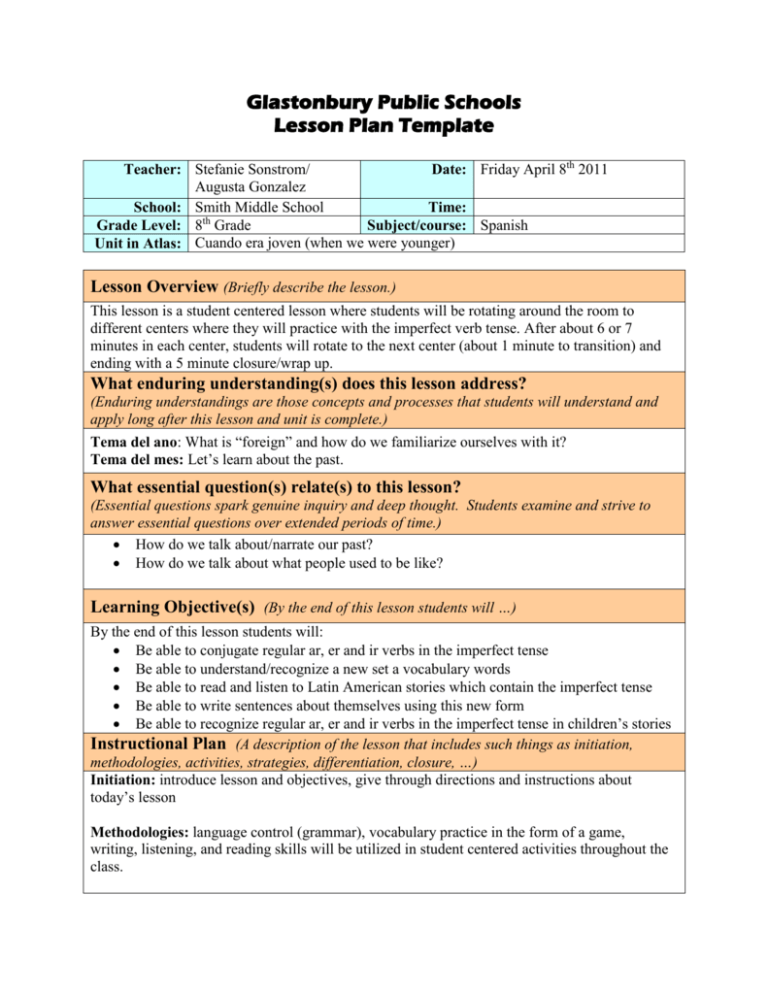
Glastonbury Public Schools Lesson Plan Template Teacher: Stefanie Sonstrom/ Date: Friday April 8th 2011 Augusta Gonzalez School: Smith Middle School Time: Grade Level: 8th Grade Subject/course: Spanish Unit in Atlas: Cuando era joven (when we were younger) Lesson Overview (Briefly describe the lesson.) This lesson is a student centered lesson where students will be rotating around the room to different centers where they will practice with the imperfect verb tense. After about 6 or 7 minutes in each center, students will rotate to the next center (about 1 minute to transition) and ending with a 5 minute closure/wrap up. What enduring understanding(s) does this lesson address? (Enduring understandings are those concepts and processes that students will understand and apply long after this lesson and unit is complete.) Tema del ano: What is “foreign” and how do we familiarize ourselves with it? Tema del mes: Let’s learn about the past. What essential question(s) relate(s) to this lesson? (Essential questions spark genuine inquiry and deep thought. Students examine and strive to answer essential questions over extended periods of time.) How do we talk about/narrate our past? How do we talk about what people used to be like? Learning Objective(s) (By the end of this lesson students will …) By the end of this lesson students will: Be able to conjugate regular ar, er and ir verbs in the imperfect tense Be able to understand/recognize a new set a vocabulary words Be able to read and listen to Latin American stories which contain the imperfect tense Be able to write sentences about themselves using this new form Be able to recognize regular ar, er and ir verbs in the imperfect tense in children’s stories Instructional Plan (A description of the lesson that includes such things as initiation, methodologies, activities, strategies, differentiation, closure, …) Initiation: introduce lesson and objectives, give through directions and instructions about today’s lesson Methodologies: language control (grammar), vocabulary practice in the form of a game, writing, listening, and reading skills will be utilized in student centered activities throughout the class. Activities: This lesson is a student centered activity where students will rotate between different centers where they will practice with the imperfect verb tense. Reading center: miscositas.com- Students will read/ listen to a story from Latin America and will have to then answer questions about it. Reading/Writing Center: In groups students will read a children’s story and will then with a partner or individually underline the use of the imperfect tense and circle the use of the preterite tense (the other past tense). To access understanding and to differentiate for those students who are higher order thinkers, they will then need to summarize the story in English. Vocabulary Practice Center: using www.wordplay.com students will be able to practice the set of vocabulary which coincides with the new verb tense we are learning in class. This website allows teachers to set up/create lessons with certain vocabulary words and can monitor student progress. Students play two different levels of games with a list of vocabulary that the teacher decides on. This allows students to learn vocabulary while having fun. Writing Center: Students will first write a sentence about themselves using the imperfect tense then draw a picture. Each group/ class will create a book which will then become a story of “cuando era joven”. The minimum writing requirement is 1 sentence; many students will choose to write more. Giving them a minimum requirement will allow students who have difficulty with processing to reach the requirement while other students can go above and beyond as they please. Strategies: student centered activities, individual assignments, group/partner assignments Differentiation: Students with special needs will be given useful “cheat sheets” to take around the room with the vocabulary in English/Spanish as well as useful verbs for the centers. These students will also have access to dictionaries and the textbook where as other students will not. Also, students with special needs will be given alternate assessments/assignments with about half the work than other students and comprehension questions in English. Closure: The class will come together with 5 minutes remaining of the period. I will poll students to see which center students like the best, which was the easiest/ hardest and why? We will then have “story time” and I will read the “cuando era joven” class book. Content (List of what we want students to know and understand as a result of this lesson) Students will be familiar with, recognize, and understand how to form the conjugations of the imperfect tense. Skills (List of skills applied during this lesson) During this lesson students will practice with the imperfect tense using reading, writing and language control (grammar) skills. Assessment (The ways you will assess student learning, e.g. formative and summative) I will collect worksheets/ stories from the centers to see where student understanding of the imperfect tense is to then see where else clarification is needed. Technology and materials required 14 laptops-worksheets for reading/grammar control center) www.miscositas.com and www.wordplay.com “Cheat Sheets”, Spanish/English dictionaries and textbooks for students with special needs Copies of the children’s stories (students here will underline the verbs in the imperfect and then summarize the story in English). Colored paper and markers Alternate assessments/ assignments for students with special needs Standards Drop down menus here (local, state, and national standards) ---- teachers select Standard 1.1 Students engage in conversations, provide and obtain information, express feelings and emotions, and exchange opinions. Standard 1.2. Understand and interpret written and spoken language on a variety of topics. Standard 4.1 Demonstrate understanding of the nature of language through comparisons of the language studied and the students’ own.
